
By Elaine Smith
New faculty enjoyed their own "orientation" to York University during a two-day event late last month. The event provided an introduction to York's unique position in the world, its focus on righting the future and offered new faculty an insiders' guide to the many supports available through the Teaching Commons.
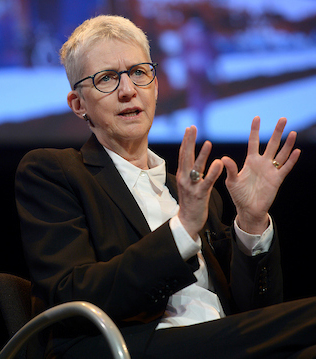
“It’s nice to see all the administrators and get introduced to the systems and to our future colleagues,” said May Haidar, an incoming York assistant professor of computer science. “It’s also exciting to have a face-to-face gathering after working online for so long.”
Haidar’s thoughts were echoed by numerous other faculty members who attended York’s two-day New Faculty Orientation on Aug. 23 and 24 in the Second Student Centre. The first day of the annual event, organized by the Office of the Associate Vice-President, Teaching & Learning, the Office of the Vice Provost, and the Office of the Provost and Vice-President Academic, was devoted to an introduction to the University, its plans and general administrative structure. The second, led by the Teaching Commons, focused on teaching interests.
Alice Pitt, acting vice-provost, academic, hosted the first day’s activities and noted that, “This is a day to help you get to know the University, some of the leadership, some of the structure, the leaders within your Faculty and each other. The last is very important; it’s a day when you will meet people who become friends across the University.”
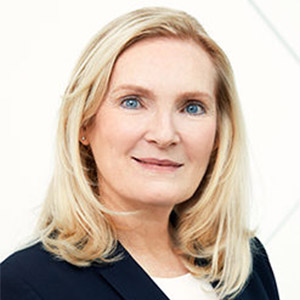
York President and Vice-Chancellor Rhonda Lenton offered a warm welcome. “We are thrilled that you have chosen us. As someone who gets to review all new faculty hires, I can say we have incredible strength in our faculty,” she said.
She shared the University’s vision to provide “a broad demographic of students with access to a high-quality, research-intensive university that is committed to driving positive change,” and noted that the vision “informs all that we do.”
Lenton maintained that a special focus this year will be 21st-century learning as the University reflects on the lessons learned during the pandemic about meeting the diverse needs of York's students. “All of you will be part of how teaching and learning takes place at York and where we can lead in terms of both teaching and research.”
Acting Provost and Vice-President Academic, Lyndon Martin, followed Lenton by giving new faculty an overview of some of the key plans and frameworks that set the direction for York. The six priorities of the University Academic Plan 2020-2025 and York’s commitment to the United Nations Sustainable Development Goals (SDGs) are both at the core of the University’s commitment to building a better future through academic excellence.
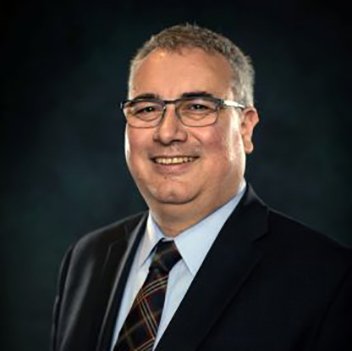
York’s research vision, said Jennifer Steeves, associate vice-president, research, is “purposeful research that advances knowledge and creates positive change.” In 2021, York received the most Tri-Council funding in the University’s history, and its $10 million in grants from the Social Sciences and Humanities Research Council Partnerships Grant program is the most among universities in Ontario, she noted. Innovation York has also yielded great innovation success, with 128 new ventures, $85 million in revenue and 283 new jobs created.
Sheila Cote-Meek, York’s inaugural vice-president of equity, people and culture, introduced herself and discussed the underlying goal of her new division, which is “to improve culture, pay attention to systemic inequalities and create an environment of inclusivity with a strong sense of belonging.”
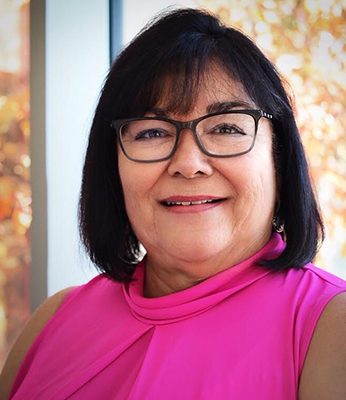
Drawing upon the teachings in Minobimaadiziwin (the good life), she added, “To live the good life, we need to be in balance with ourselves and the environment around us and think more deeply about what we can contribute in a positive way.”
She also touched on equity and diversity, something also mentioned by Ran Lewin, the assistant vice-president, budgets and asset management, who said that his division is “driven by principles of service excellence with responsive and adaptive services and solutions.” He also noted, “I believe that the special sauce that makes York so unique is diversity.”
Susana Gajic-Bruyea, vice-president of advancement, expanded on that theme, saying the four divisions under her purview are “committed to building York’s reputation as a leading research institution committed to the betterment of society.”
Day one also included presentations about equity, diversity, inclusion and decolonization (EDID); Indigenization; working with graduate students; research; and tenure and promotion. The second day, titled "A Focus on Teaching, Learning and Student Success," was devoted to student success, accessibility, learning technologies and libraries. Faculty members also heard from students and a panel of existing York faculty members.
“You, as teaching academics, can play a big role in shaping where we are going as a university. You have influence over hundreds and thousands of students – these are the people who matter the most. For this reason, the Teaching Commons promotes and helps sustain a teaching and learning culture where the student experience lies at the heart of all teaching activities,” said Geneviève Maheux-Pelletier, director of the Teaching Commons and the day’s host.
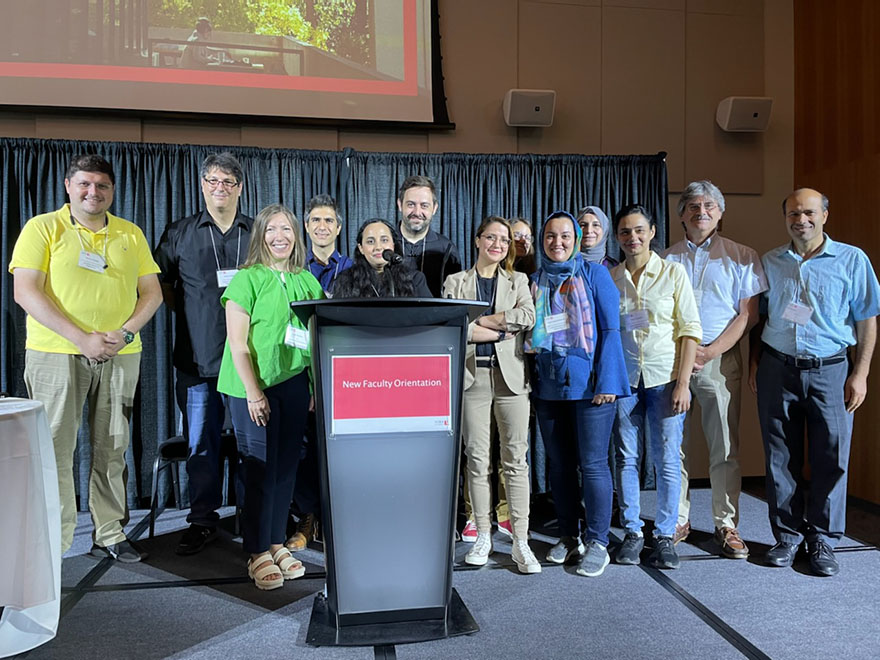
“There is a lot I’ve been interested in seeing, such as how the University is structured and what its initiatives are,” said Denis Martin, a new assistant professor of music technology in the School of the Arts, Music, Performance & Design. “It is helping me to fill in the gaps, to understand how music fits into the University and how York fits into the university landscape.”
Kostas Kontogiannis, an incoming mature faculty member in computer science and electrical engineering, was one of a group of new computer science professors destined for the Markham Campus once it opens. “Each university and each campus has its own culture,” he said. “I want to better understand York’s priorities, directions and culture, and to discover how it thinks as an organism.”
All the new faculty sounded eager to take up the challenge implied by Lenton when she said, “You will be central in what the University is and what it needs to be.”
